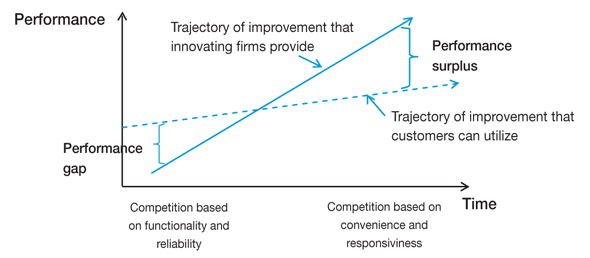J Korean Med Assoc.
2012 Aug;55(8):791-797. 10.5124/jkma.2012.55.8.791.
A proposal for the disruptive innovation of healthcare delivery system in Korea
- Affiliations
-
- 1Graduate School of Healthcare Management and Policy, The Catholic University of Korea, Seoul, Korea. kjkim@catholic.ac.kr
- KMID: 1435185
- DOI: http://doi.org/10.5124/jkma.2012.55.8.791
Abstract
- In March 2011, after a series of discussions, the Korean government released a basic plan for functional reestablishment of medical institutions. However, the policy has ended up reestablishing the functions and roles of medical institutions without considering the advance of medical technologies and the emergence of new forms of providers. The advances of the medical knowledge and technologies enable the provision of lower-cost, higher-quality, more accessible healthcare services. Therefore, the reestablishment of medical institutions' functions needs to be done on the basis of medical technology advancement. In this article, policy suggestions and managerial implications for healthcare service providers are discussed based on disruptive innovation. It is expected to contribute to the discussions on the healthcare delivery system of Korea.
MeSH Terms
Figure
Reference
-
1. Ministry of Health and Welfare. New health plan 2020. 2011. Seoul: Ministry of Health and Welfare.2. Kwon SM. A research for the 21C healthcare system in Korea. 2010. Seoul: Korea Medical Institute.3. Cho JK. An improvement plan for health care delivery system. Health Welf Policy Forum. 2010. 169:6–15.
Article4. Han DS. A revisit to policy agenda concerned with the distortion of functional differentiation among health care providers. Korean J Health Policy Adm. 2010. 20:1–18.
Article5. Porter R. The Cambridge illustrated history of medicine. 1996. New York: Cambridge University Press.
Article6. Rha KH. The present and future of robotic surgery. J Korean Med Assoc. 2008. 51:67–73.
Article7. Christensen CM, Grossman JH, Hwang J. The innovator's prescription: a disruptive solution for health care. 2009. New York: McGraw-Hill.
Article8. Christensen CM. The innovator's dilemma: when new technologies cause great firms to fail. 1997. Boston: Harvard Business School Press.
Article9. Feature Team. Disruptive innovation by service design: cases from Mayo Clinic. The Korean Doctors' Weekly. 2012. 01. 16.
Article10. Feature Team. Let the smartphone do lifestyle correction. The Korean Doctors' Weekly. 2012. 02. 06.
Article11. Schneider JE, Miller TR, Ohsfeldt RL, Morrisey MA, Zelner BA, Pengxiang Li. The economics of specialty hospitals. Med Care Res Rev. 2008. 65:531–553.12. Hwang J, Christensen CM. Disruptive innovation in health care delivery: a framework for business-model innovation. Health Aff (Millwood). 2008. 27:1329–1335.13. Pauly MV. 'We aren't quite as good, but we sure are cheap': prospects for disruptive innovation in medical care and insurance markets. Health Aff (Millwood). 2008. 27:1349–1352.
Article14. Havighurst CC. Disruptive innovation: the demand side. Health Aff (Millwood). 2008. 27:1341–1344.
Article15. Institute of Medicine. Crossing the quality chasm: a new health system for the 21st century. 2001. Washington, DC: National Academy Press.
Article16. Fisher ES, McClellan MB, Bertko J, Lieberman SM, Lee JJ, Lewis JL, Skinner JS. Fostering accountable health care: moving forward in medicare. Health Aff (Millwood). 2009. 28:w219–w231.
Article17. Lee SM. Evidence-based healthcare: seeking for the broken virtuous circle. J Korean Med Assoc. 2009. 52:532–535.18. Feature Team. The answer is community-based medical service. The Korean Doctors' Weekly. 2012. 02. 27.
- Full Text Links
- Actions
-
Cited
- CITED
-
- Close
- Share
- Similar articles
-
- Current Issues of Healthcare Research and Development in Korea
- Qualitative Analysis of Tele-healthcare Systems based on the Diffusion of Innovation Model
- Establishment of Healthcare Delivery System through Improvement of Health Insurance System
- Secondary Use Provisions in the European Health Data Space Proposal and Policy Recommendations for Korea
- Limitation and Improvement Plan of Maternity Healthcare Delivery System in Korea


